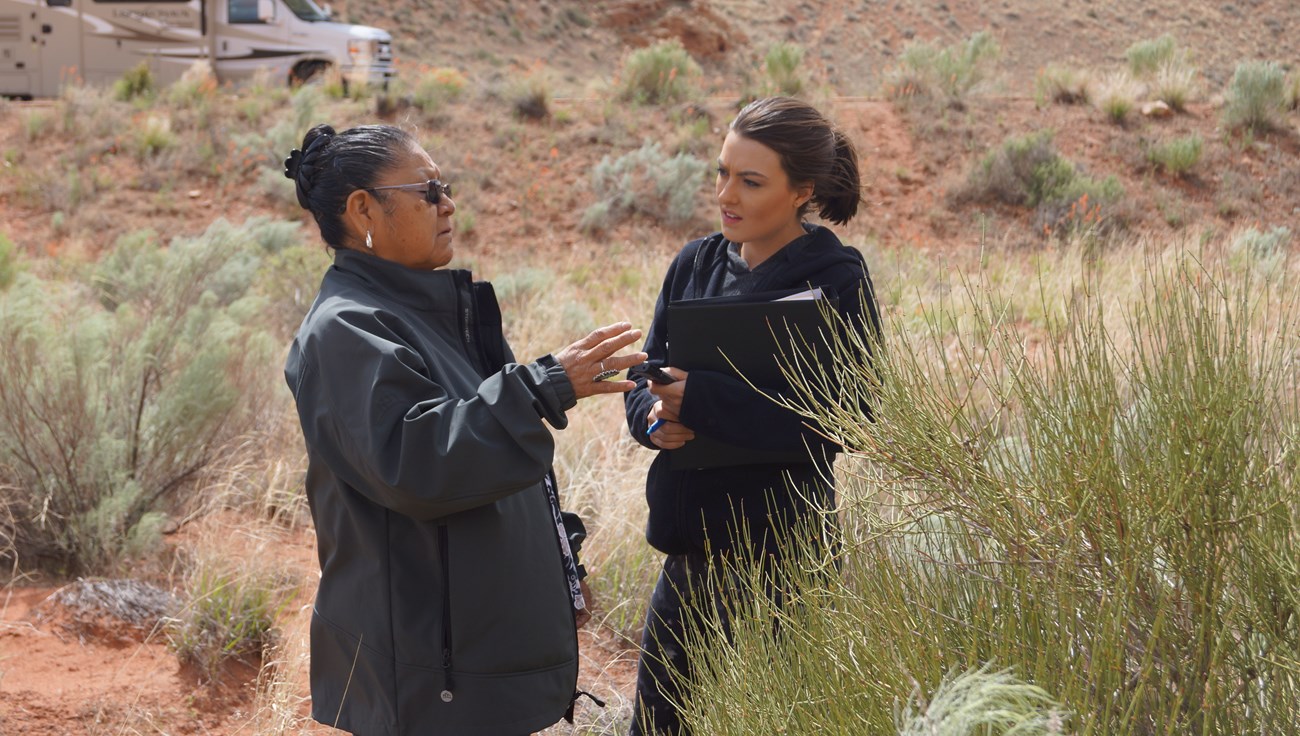Last updated: July 26, 2024
Article
Tribal Plant Gathering in National Parks Tribal Consultation

Courtesy of Kathleen Van Vlack
What is the NPS Plant Gathering Regulation?
The plant gathering regulation at 36 CFR 2.6 allows the National Park Service (NPS) to negotiate and enter into agreements with federally recognized Tribes who wish to gather plants or plant parts from a NPS unit for traditional purposes. Since the regulation was finalized in 2016, three agreements for plant collection in parks have been finalized.
Why is the Plant Gathering Regulation Needed?
The NPS recognizes that Indian Tribes have practiced traditional harvests of plants and plant parts on lands that are now included in the National Park System since long before the NPS was established. Plant gathering, possession, or removal from a NPS unit is prohibited (including for traditional purposes) unless authorized through the process in 36 CFR 2.6, or through separate federal law or treaty right. The rule authorizes agreements between the NPS and federally recognized tribes that facilitate the continuation of tribal cultural practices on lands within areas of the National Park System where those practices traditionally occurred, without causing a significant adverse impact to park resources.
Who is Eligible to Request a Plant Gathering Agreement?
The regulation only applies to members of federally recognized Tribes. Tribes (not individual tribal members) must submit a written request to initiate the process to develop an agreement to the associated NPS unit (see the “Tribal Leaders Guide to the National Park Service Plant Gathering Regulation.”)
The regulation does not apply to Native Hawaiians, state-recognized Tribes, or members of non-federally recognized tribal groups. The Plant Gathering Regulation only applies to four NPS units in Alaska: Klondike Gold Rush National Historical Park, Sitka National Historical Park, Denali National Park & Preserve, and Katmai National Park & Preserve. The regulation has limited applicability in Alaska given the unique authorities for subsistence activities.
What is the Purpose of the 2023 Tribal Consultation?
The NPS is aware of some tribal concerns with the current process to request and develop plant gathering agreements and issue permits for the gathering of plants or plant parts. The purpose of the consultation is to collect information from Tribal governments and the Native Hawaiian Community on their experiences or concerns with the NPS process for allowing traditional gathering of plants or plant parts, including the process outlined in the existing regulations.
Comments from Indian Tribes and the Native Hawaiian Community may be used to consider changes to NPS policies or practices, or to explore potential revisions to the existing regulations. Any changes, in whatever form they ultimately take, are intended to better ensure the protection of tribal traditional gathering practices and to create more consistent and streamlined implementation standards for park managers.
Resources
Policy Memorandum 24-01 was recently released and gives NPS superintendents and park managers more clarity on how to negotiate and enter into plant gathering agreements with Tribes while respecting Indigenous gathering practices.- Tribal Consultation Briefing Statement (503KB PDF)
- Tribal Leaders Guide to the National Park Service Plant Gathering Regulation (996KB PDF)
- Consultation Slide Deck (1.69MB PDF)
- Dear Tribal Leader Letter – Continental US* (216KB PDF)
- Dear Alaska Native Leader Letter* (244KB PDF)
- Dear Native Hawaiian Community Leader Letter* (256KB PDF)
*These letters are digital copies of original signed documents made availabe online. To request an official letter, email the NPS Office of Native American Affairs.
